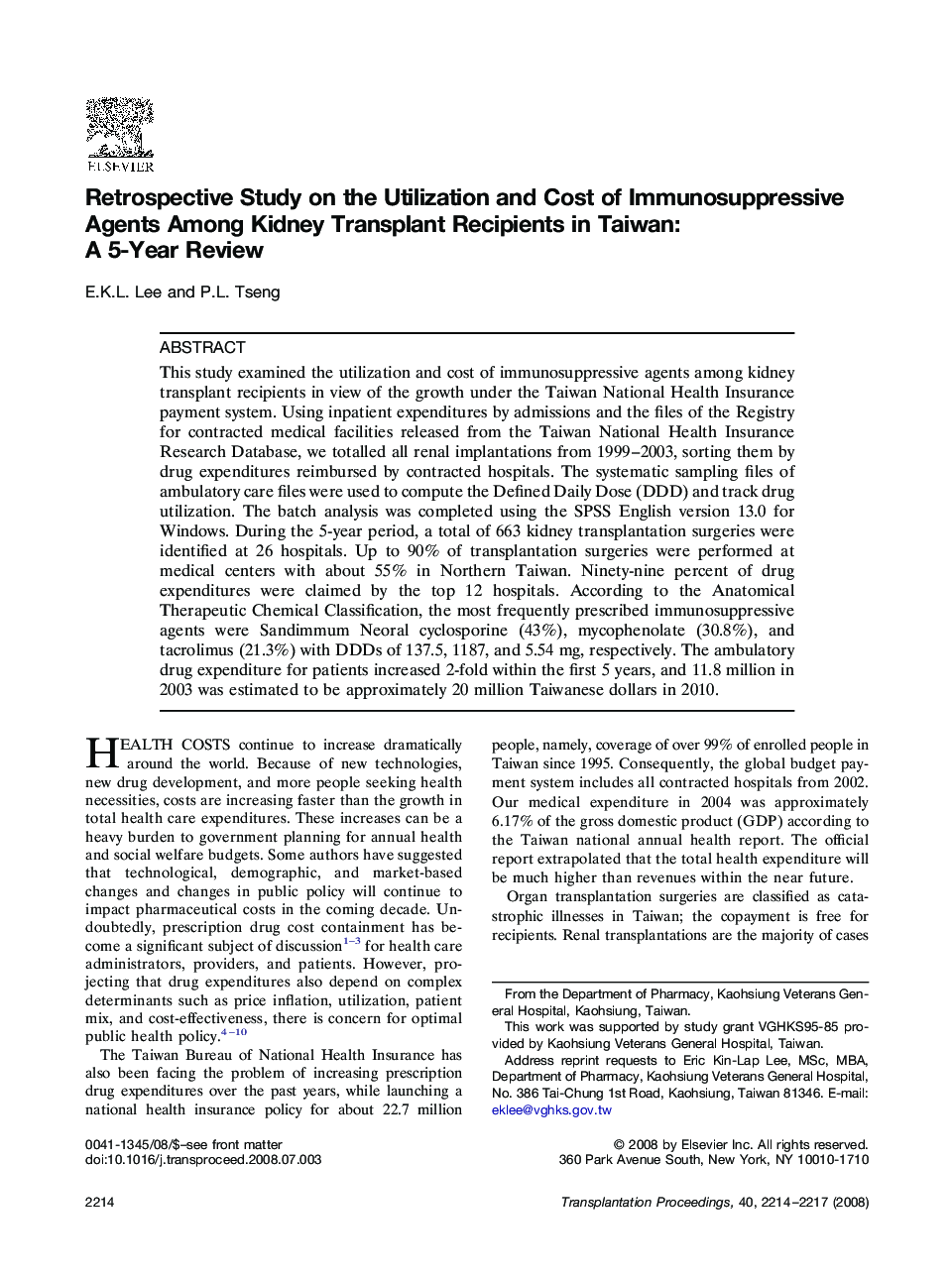| Article ID | Journal | Published Year | Pages | File Type |
|---|---|---|---|---|
| 4262476 | Transplantation Proceedings | 2008 | 4 Pages |
This study examined the utilization and cost of immunosuppressive agents among kidney transplant recipients in view of the growth under the Taiwan National Health Insurance payment system. Using inpatient expenditures by admissions and the files of the Registry for contracted medical facilities released from the Taiwan National Health Insurance Research Database, we totalled all renal implantations from 1999–2003, sorting them by drug expenditures reimbursed by contracted hospitals. The systematic sampling files of ambulatory care files were used to compute the Defined Daily Dose (DDD) and track drug utilization. The batch analysis was completed using the SPSS English version 13.0 for Windows. During the 5-year period, a total of 663 kidney transplantation surgeries were identified at 26 hospitals. Up to 90% of transplantation surgeries were performed at medical centers with about 55% in Northern Taiwan. Ninety-nine percent of drug expenditures were claimed by the top 12 hospitals. According to the Anatomical Therapeutic Chemical Classification, the most frequently prescribed immunosuppressive agents were Sandimmum Neoral cyclosporine (43%), mycophenolate (30.8%), and tacrolimus (21.3%) with DDDs of 137.5, 1187, and 5.54 mg, respectively. The ambulatory drug expenditure for patients increased 2-fold within the first 5 years, and 11.8 million in 2003 was estimated to be approximately 20 million Taiwanese dollars in 2010.
